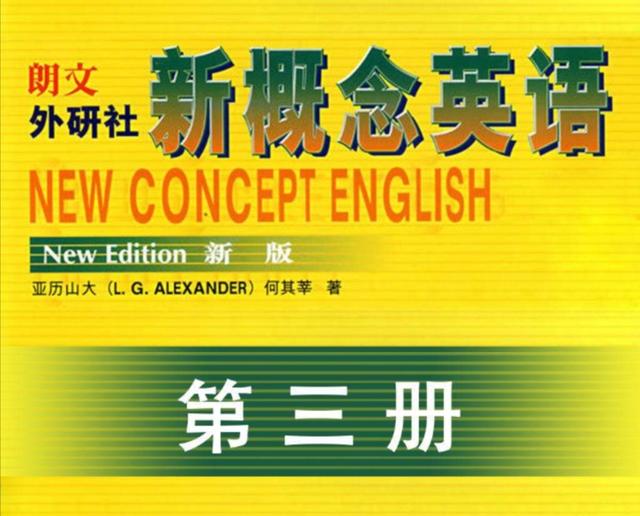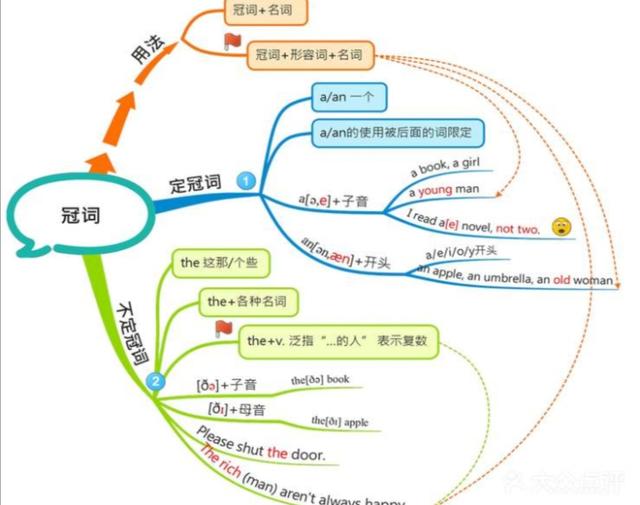新概念第二册lesson 2基本句型(新概念英语三Lesson)
《新概念英语》(3) Lesson 2
课文难句解析及翻译
一、课文
Lesson 2 Thirteen equals one
Our vicar is always raising money for one cause or another, but he has never managed to get enough money to have the church clock repaired. The big clock which used to strike the hours day and night was damaged many years ago and has been silent ever since.
One night, however, our vicar woke up with a start: the clock was striking the hours! Looking at his watch, he saw that it was one o'clock, but the bell struck thirteen times before it stopped. Armed with a torch, the vicar went up into the clock tower to see what was going on. In the torchlight, he caught sight of a figure whom he immediately recognized as Bill Wilkins, our local grocer. 'whatever are you doing up here Bill ?' asked the vicar in surprise.'I'm trying to repair the bell,' answered Bill.' I've been coming up here night after night for weeks now. You see, I was hoping to give you a surprise.'
'You certainly did give me a surprise!' said the vicar. 'You've probably woken up everyone in the village as well. still, I'm glad the bell is working again.'
'That's the trouble, vicar,' answered Bill. 'It's working all right, but I'm afraid that at one o'clock it will strike thirteen times and there's nothing I can do about it.'
'We'll get used to that Bill,' said the vicar. 'Thirteen is not as good as one but it's better than nothing. Now let's go downstairs and have a cup of tea.'

二、长难句分析
1. The big clock【 which used to strike the hours day and night】 was damaged many years ago and has been silent ever since.教堂的钟很大,以前不分昼夜地打点报时,但在很多年前遭到毁坏,从此便无声无息了。语法分析:此句整体是个并列句,其中使用了定语从句对主语加以修饰。
used to:过去常常做,而现在不再发生的事情了e.g. He used to smoke every day.
2. Armed with a torch, the vicar went up into the clock tower to see what was going on.牧师拿着一支电筒走上钟楼想去看看究竟发生了什么事情。语法分析:此处Armed with a torch,过去分词作状语,分词作状语时,逻辑主语应与句子主语一致,当句子的主语与分词构成动作与宾语的关系时,分词就要用过去分词形式。分词的动作arm和主语the vicar之间是被动关系,所以用了过去分词。我们可以将状语还原成句子:The vicar was armed with a torch then he went up into the clock tower.
Seeing from the hill, you can see the whole city.
Heated to 100℃,water will boil.Seen from the top of the mountain, the village looked much more beautiful.再如课文中
Looking at his watch, he saw that it was one o'clock.

分词做状语时,一定要注意它和逻辑主语要呼应一致。这个个句子中,动作look和主语he之间是主动关系,因而用了现在分词。3. In the torchlight, he caught sight of a figure whom he immediately recognized as Bill Wilkins, our local grocer.借着电筒光,他看见一个人,马上认出那是本地杂货店店主比尔威尔金斯。
语法分析:
in the torchlight 在电筒光下,借着手电筒的光;sight of 看见,发现, whom引导的定语从句;
recognized… as… 认出…为…,认出某人是…。搭配相近的词组有:
regard sb as 把某人认作,
think of sb as 把某人看作,
treat sb as(把某人对待为),
have on sb as(把某人尊敬为),
look on /upon sb as把某人看作…。
4. The city at one time must have been prosperous, for it enjoyed a high level of civilization.这座古城肯定一度很繁荣,因为它曾享有高度的文明。语法分析:
must have been是表示肯定的推测, a high level of 是高度的…如:
a high level of pressure 高负荷压力
5. Our vicar is always raising money for one cause or another, but he has never managed to get enough money to have the church clock repaired.
always 是个频度副词和现在进行时搭配-,翻译为“总是”,表示说话人所说的话带有的情感色彩。Tom is always doing homework.总是在做作业。(或表扬,或责备)He is always making noises.老是吵。(心里不舒服,很烦)one or another 表示某种、这样或那样。get enough money 筹集足够的资金来做某事。have sth. done 找某人来做某事。e.g.
have the plane repaired 修飞机,have hair cut 剪头发。
He had his wallet stolen.某人所遭受到的意外某种情况-----主语必须是发出动作的人。他的钱包让人偷了。
6. One night, however, our vicar woke up with a start. however 用于口语,主要用于句首;用于作文中时,最好用在句中、句尾,要用逗号分隔开来。however 可用nevertheless, nonetheless 替换e.g.
I know his story, however, I wouldn't like to tell you.
I know his story, I, however, wouldn't like to tell you.
7. Whatever are you doing up here Bill ?
whatever用于疑问句中,加强what的语气,作"究竟什么"解释。
8. I've been coming up here night after night for weeks now.
night after night 一夜连着一夜,这里也可用every night代替,表示没有一夜例外。
after在这里表示:一个接着一个。类似这种 A after A 的词组还有:
day after day / year after year / week after week / bus after bus/shop after shop
9. You certainly did give me a surprise!肯定句中常用助动词do, did, does加强语气和情感色彩,一定要位于动词原形之前。文中在did之前,还用了副词certainly,意思是"的确",进一步加强了语气。e.g. You do look beautiful today. 你今天看起来真漂亮。
10. You've probably woken up everyone in the village as well.
as well用在句尾相当于too, 主要用在肯定句中,但比too所表达的语意更优秀。
11. Still, I'm glad the bell is working again. 不过,钟又能报时了,我还是很高兴的。
still用于句首,用逗号分隔开来,表达转折的关系。意思是尽管如此,依旧,仍然 。这里still = Just the same,本句也可这样表达:All the same, I am glad the bell is working again.
12. Thirteen is not as good as one, but it's better than nothing. 13下是不如一下好,但是比一下也不敲强。这是个很好的安慰人的句子。作者用了...not as good as, but it is better than... 来表达情况并不是很糟。
13. 介词In 的用法总结:
A.prep 表达惊奇,恐惧,失望或生气等感情色彩的名词搭配连用,在句中起状语的作用:in surprise; in astonishment;
in alarm; in embarrassment;in amazement; in despair;
in dismay; in anger;in disappointment
B.prep表达以、用: 用于语言,书写材料,色彩或声音等方面:in English; in pencil; in ink;
in a few words;
in such a high voice;
in oil; in red; in code
C.用于状态、情况或处境:
in trouble; in difficulty; in bed;
in a hurry; in debt; in love with sb; in tears; in good order;
in good repair; in good health;
in por health; in the bad mood;
in the good mood; in haste;
in a favor of excitement;
in poverty; in luxury
三、课文翻译我们教区的牧师总是为各种各样的事筹集资金。但始终未能筹足资金把教堂的钟修好。教堂的钟很大,以前不分昼夜打点报时,但很多年前遭到毁坏,从此便无声无息了。
一天夜里,我们的牧师突然被惊醒了,大钟又在“打点”报时了!他一看表,才1点钟,可是那钟一边敲了13下才停。牧师拿着一支电筒走上钟楼想去看看究竟发生了什么事情。借着电筒光。他看见一个人,马上认出那是本地杂货店主经比尔.威尔金斯。
“你究竟在这上面干什么,比尔?”牧师惊讶地问。
“我想把这口钟修好,”比尔回答说。“好几个星期了,我天天夜里到钟楼上来。嗯,我是想让你大吃一惊。”
“你确实使我大吃了一惊!”牧师说,“也许同时你把村里所有的人都吵醒了。不过,钟又能报时了,我还是很高兴的。”
“问题就在这里,牧师,”比尔回答说。“不错,钟能报时了,但是,恐怕每到1点钟,它总要敲13下,对此我已无能为力了。”
“大家慢慢就习惯了,比尔,”牧师说。“13下是不如1下好,但总比1下也不敲强。来,咱们下楼去喝杯茶吧。”
,
免责声明:本文仅代表文章作者的个人观点,与本站无关。其原创性、真实性以及文中陈述文字和内容未经本站证实,对本文以及其中全部或者部分内容文字的真实性、完整性和原创性本站不作任何保证或承诺,请读者仅作参考,并自行核实相关内容。文章投诉邮箱:anhduc.ph@yahoo.com







